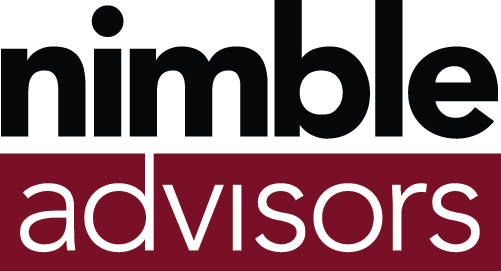7 Top Recruiting Mistakes Companies Make
Hiring the right people is essential for any business that wants to succeed. But with so many qualified candidates out there, it can be difficult to know where to start. The labor market has remained resilient throughout the Fed’s battle with inflation for over a year now, and quality talent is generally staying put. It is more important than ever to ensure you are maximizing your recruiting efforts and budget. Making a mistake during the recruiting process can cost your company not only time and money, but you may miss out on some of the available talent that is out there that can transform your company.
In this article, we'll discuss some of the most common recruiting mistakes that businesses make and how you can avoid them.
Mistake #1: Not writing compelling job postings
Your job posting is often the first point of contact between your company and potential candidates. So it's important to make sure it's well-written and informative.
A good job posting should:
Clearly describe the role and its responsibilities
Highlight the key skills and experience you're looking for
Be honest about the company culture and work environment
Offer a competitive salary and benefits package
Be free of any biased language
If your job postings are dry and uninspired, you're less likely to attract top talent. Take the time to write job postings that are clear, concise, and engaging.
Mistake #2: Not advertising strategically
Once you've written a great job posting, you need to get it in front of the right people. That means advertising strategically.
Consider the following:
What job boards are your target candidates using?
Are there any industry-specific job boards that you should target?
Can you use social media to reach your target audience?
Can you tap into your network for referrals?
Don't just post your job on your company's website or on a job board and hope for the best. Take the time to develop a strategic advertising plan.
Mistake #3: Not preparing for candidate interviews
Before you start interviewing candidates, it's important to be prepared. This means:
Reviewing each candidate's resume carefully
Developing a list of questions to ask
Thinking about how you'll assess each candidate's skills and experience
If you're not prepared for interviews, you're more likely to make mistakes. And this could lead you to hire the wrong person for the job.
Mistake #4: Asking predictable interview questions
The days of asking yes-or-no interview questions are long gone. Today, you need to ask behavioral interview questions that allow you to assess a candidate's skills and experience in real-world situations similar to the challenges they will experience in your company.
Examples of behavioral interview questions include:
Tell me about a time when you had to deal with a difficult customer.
Describe a time when you had to work under pressure.
Give me an example of a time when you went above and beyond to help a customer.
Avoid asking predictable interview questions that candidates can easily rehearse for. Instead, ask questions that will give you a better understanding of how candidates would perform on the job.
Mistake #5: Not selling your company
When you're interviewing candidates, you're not just trying to assess their skills and experience. You're also trying to sell them to your company.
Be prepared to talk about your company's mission, vision, values, and culture. Explain why you're passionate about working for the company. And highlight the benefits that your company offers to its employees.
If you can't sell candidates to your company, you're less likely to attract top talent.
Mistake #6: Not following up
After you've interviewed candidates, it's important to follow up with them promptly. This means:
Sending a thank-you note to each candidate
Letting candidates know if they're moving forward to the next round of interviews
If you're not moving forward with a candidate, letting them know politely and professionally
Don't leave candidates hanging. Show them that you respect their time and that you're committed to a professional recruiting process.
Mistake #7: Not hiring quickly enough
In today's hyper-competitive job market, quality talent is in high demand. If you don't hire quickly, you risk losing the best candidates to other companies.
Once you've found a candidate that you're excited about, move quickly to make an offer. If you hesitate, you could lose them to another company.
By avoiding these common recruiting mistakes, you can increase your chances of hiring the best people for your company.
Additional tips for avoiding recruiting mistakes
Use a variety of recruiting methods. Don't rely on just one method to find candidates. Use a variety of methods, such as job boards, social media, networking, and referrals.
Be transparent about the hiring process. Let candidates know what to expect from the hiring process, and stick to your timeline.
Be respectful of the candidates' time. Don't keep candidates waiting for interviews or decisions. And if you're not moving forward with a candidate, let them know promptly.
Get feedback. During the interview process and even afterwards, if you’ve contacted a candidate who has decided to accept an offer from another employer, ask what swayed them in the direction of the other employer as opposed to your company.
Do you and your team need a little help evaluating your recruiting, hiring, compensation, or retention policies and procedures to ensure you are putting your best foot forward?
If so, maybe its time we had a conversation about how we could help. Let’s talk.

